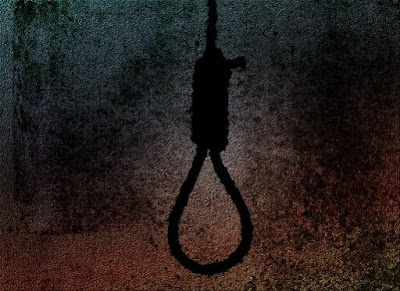BRIDGETOWN, Barbados (CMC) — The London-based international human rights organisation, Amnesty International, says while it welcomes a “significant reduction” in the application of the use of the death penalty in the English-speaking Caribbean in recent years, it is urging all regional countries to abolish it.
“As the English-speaking Caribbean marks its first decade as an execution-free region, Amnesty International congratulates those governments who have recognised the ultimate cruelty of the death penalty and renews its calls on them and all other states that still retain this punishment to take further steps to abolish it for good,” Amnesty International said in a statement at year-end.
It said figures on the use of the death penalty in the English-speaking Caribbean indicate that there has been a significant reduction in the application of this punishment in recent years.
According to Amnesty International, only half of the 12 English-speaking Caribbean countries have imposed new death sentences since the last man was executed in St Kitts-Nevis at the end of 2008.
It said five countries – Antigua and Barbuda, Bahamas, Belize, Jamaica, and St Lucia – have commuted their remaining death sentences in the past five years (2013-2017), reporting empty death rows and leaving a minority of countries to carry the weight of the death penalty in the Americas region, together with the United States.
Amnesty International said the United States has remained the only State to carry out executions, but even in the USA figures on death sentences imposed and implemented have reached historically low records.
Amnesty International said that as of the end of 2017, over 96 per cent of all those on death row in the English-speaking Caribbean were held in three countries alone, Barbados (13 per cent), Guyana (32 per cent) and Trinidad and Tobago (52 per cent). The three countries retain the mandatory death penalty in their legislation.
“International law prohibits the mandatory imposition of the death penalty, as it removes from judges the possibility of considering any mitigating factors at sentencing in relation to the circumstances of the offence and of the offender.”
Amnesty International said that the overall decrease in the death sentences in the region fully reflects global trends on the death penalty, noting that in the past decade, 13 countries have repealed the death penalty completely from their national legislation and a further two have become abolitionist for ordinary crimes, such as murder, retaining it only for crimes committed in exceptional circumstances.
The international human rights group notes that a recent decision by the Trinidad-based Caribbean Court of Justice (CCJ), the highest appellate court for Barbados, shows that the momentum towards abolition is set to continue.
It said that on June 27, last year, the CCJ ruled in relation to two cases from Barbados that Section 2 of the Offences Against the Person Act was unconstitutional because it gave judges no choice but to apply the death sentence.
“The court recommended resentencing for all cases where a death penalty sentence was initially given for murder under Section 2 of the Act. As the Parliament of Barbados continues its deliberations on draft legislation proposed in 2014, aiming at introducing judicial discretion in murder cases to comply with decisions by the Inter-American Court of Human Rights, the death penalty in the region was handed another blow,” Amnesty International added.
It said cracks in the wall of capital punishment in the English-speaking Caribbean were also seen at the international level in 2018.
“For the first time, two countries from the English-speaking Caribbean did not oppose a UN call for the establishment of a moratorium on executions with a view to abolishing the death penalty, in a historic move that further shows that global consensus is building towards ending the use of the death penalty.”
Amnesty International said on December 17, the UN General Assembly adopted with record-high support its seventh resolution on the issue.
“For the first time, Dominica co-sponsored and voted in favour of the resolution, and Antigua and Barbuda and Guyana abstained at the vote, in an unprecedented move that shows the perception of the death penalty in the region is changing,” Amnesty International said.
Source: jamaicaobserver.com, January 3, 2019
⚑ | Report an error, an omission, a typo; suggest a story or a new angle to an existing story; submit a piece, a comment; recommend a resource; contact the webmaster, contact us:
deathpenaltynews@gmail.com.
Opposed to Capital Punishment? Help us keep this blog up and running! DONATE!
"One is absolutely sickened, not by the crimes that the wicked have committed,
but by the punishments that the good have inflicted." -- Oscar Wilde33












